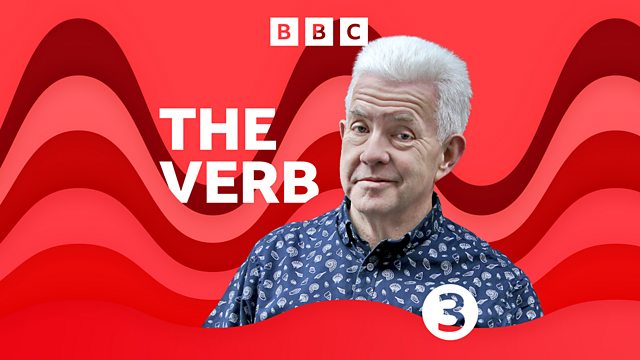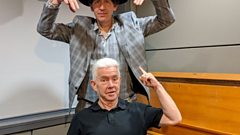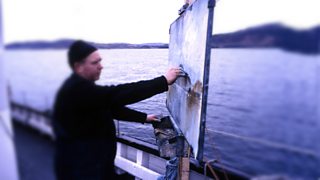German poetry after the Berlin Wall
Ian McMillan explores German poetry after the fall of the Berlin Wall – with two of Germany's most celebrated and groundbreaking poets, Durs Grünbein and Nora Gomringer.
Ian McMillan explores German poetry after the fall of the Berlin Wall – with two of Germany’s most celebrated and groundbreaking poets Durs Grünbein and Nora Gomringer. He is also joined by Professor Karen Leeder who’s explored the ways in which contemporary German literature is ‘haunted’ by the GDR, and by Ira Lightman who reads a new poem haunted by Rainer Maria Rilke – the German language poet most often translated into English - and a translation of one of Durs' poems.
Presenter: Ian McMillan
Producer: Faith Lawrence
Last on
More episodes
Previous
Next
Clip
-
![]()
Ira & Ian read from Rilke's Wellies
Duration: 01:14
Durs Grünbein

Durs Grünbein has been called the ‘national poet’ of Germany – he first came to prominence in the period called Die Wende (the period of reunification) after the fall of the Berlin Wall. Durs is very much a poet of international influences, and his poems have often drawn on scientific concepts and language to explore the human condition. Durs also shares his writing about Dresden (his birthplace) and discusses the experience of having his work translated.
Karen Leeder

Karen Leeder is Professor of Modern German Literature at New College, Oxford. She is a prize winning translator – and won the Stephen Spender Translation prize for ‘Childhood in the Diorama’ by Durs Grünbein – which she reads on this programme. She has published widely on modern German culture - her interests range from poetry and the poetic tradition to modernity, GDR literature; contemporary German culture, lateness, women’s writing, angels, spectres, translation, Rilke and Brecht. She is the co-editor of ‘Durs Grünbein- A Companion’ ( De Gruyter).
Nora Gomringer

Nora Gomringer is an award-winning poet - she grew up in Rehau, West Germany – close to the border with the GDR. For The Verb she reads a new translation of a poem called ‘Borderland’ about her experience of Die Wende ( the period of reunification) translated by Annie Rutherford into English. She also performs ‘I’m going to do something with language’ from ‘Hydra’s Heads’ (Burning Eye) also translated by Annie Rutherford.
Ira Lightman

Verb regular, poet and artmaker Ira Lightman delights in the opportunity to share his own translations of German poems. The first is translation of a sonnet by Rainer Maria Rilke ( from ‘Sonnets to Orpheus’) – the second is one of Durs Grünbein’s poems, which Ira entitles ‘Naturally a Waltz’. Ira’s Rilke translation is part of an experimental new pamphlet called ‘Rilke’s Wellies’ (Red Squirrel) which combines three texts – ( linked semantically and presented across adjoining pages), offering a side-ways approach to this iconic German language writer.
Broadcast
- Fri 15 Nov 2019 22:00����ý Radio 3
Featured in...
![]()
Arts
Creativity, performance, debate
����ý Arts
Explore the ����ý Arts website and discover the best of British art and culture.
The Dylan Thomas Collection
Listen to programmes, poetry readings and commentary from Radio 3's Dylan Thomas Day.
Podcast
-
![]()
The Verb
Radio 3's cabaret of the word, featuring the best poetry, new writing and performance






